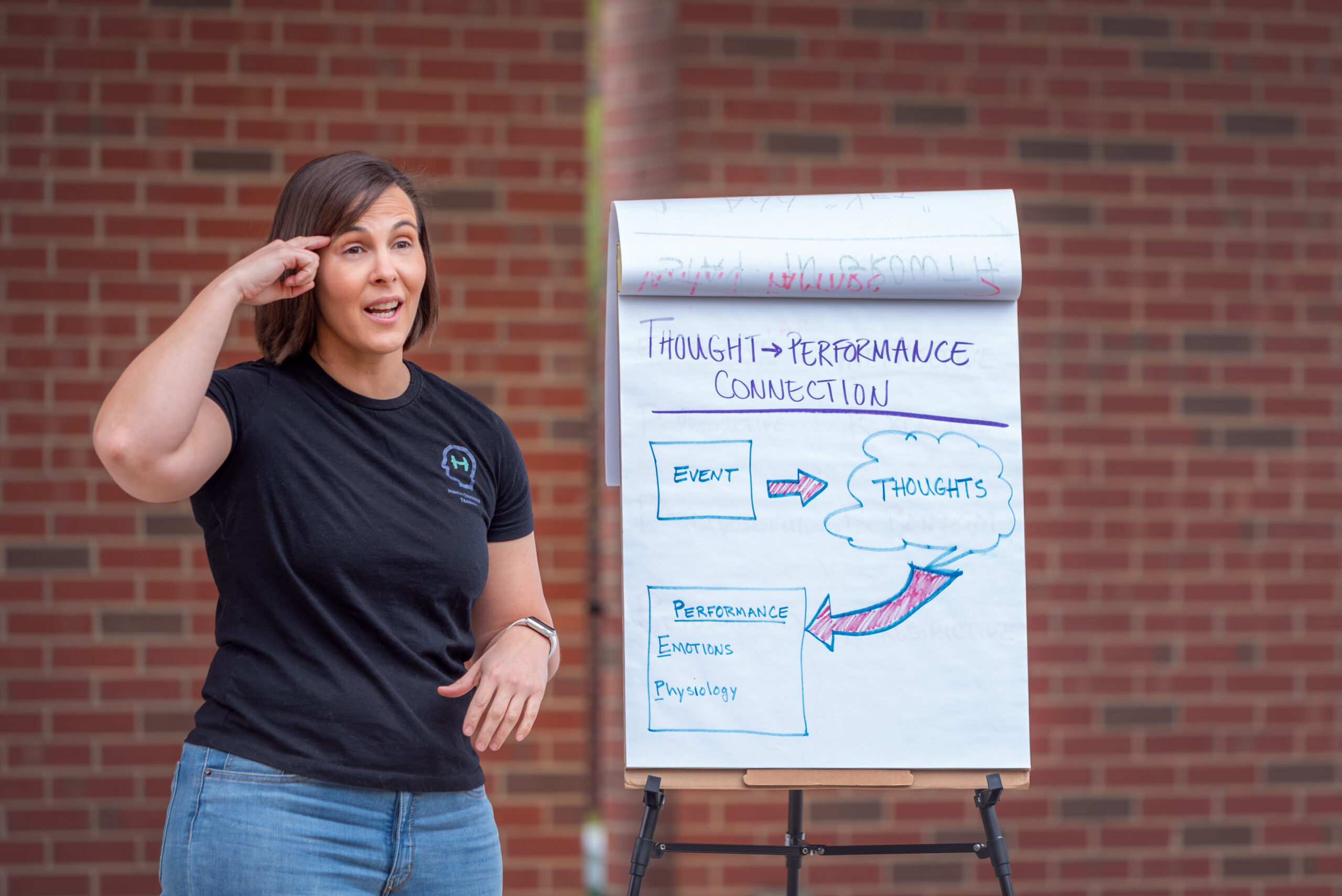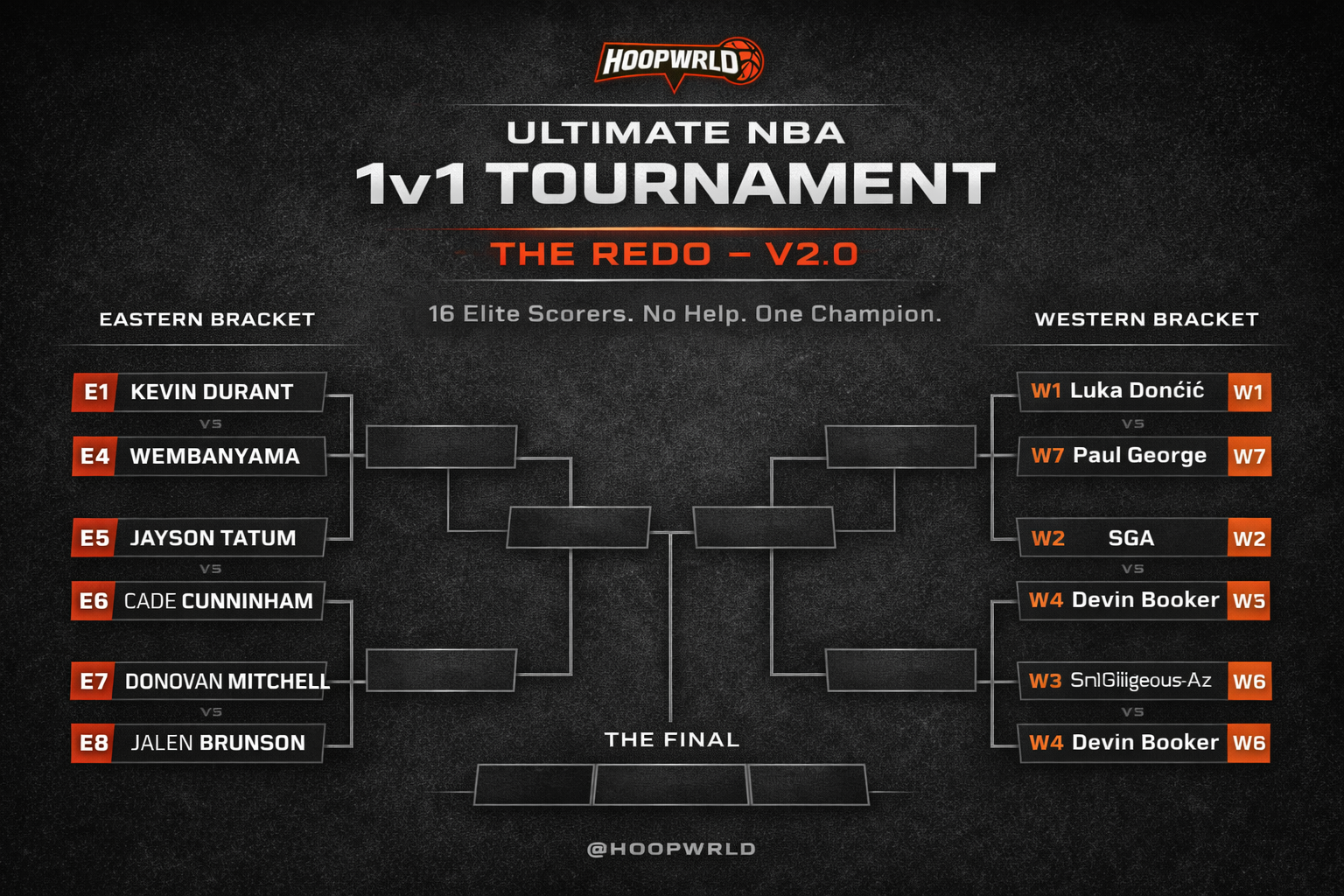For Parents:
Hoopwrld was fortunate to interview Valerie Alston, a mental performance coach who brings unique insight to youth sports psychology. As a former D1 softball player at the University of Minnesota who struggled with performance anxiety during her own athletic career, Alston has dedicated her life to helping young athletes overcome mental barriers and reach their goals. Her approach combines professional expertise with personal understanding of the pressures facing competitive athletes.
Young athletes today face unique challenges that can impact their confidence and enjoyment of sports. Through our conversation with Alston, we gathered practical advice for parents looking to support their children through the psychological aspects of athletic development.
Understanding Today’s Young Athletes
Today’s youth athletes face pressures previous generations didn’t experience. “There are a lot of deficits in youth today,” explains Alston. “They’re struggling with anxiety and pressure and perfection and all these things that really previous generations have not dealt with. The research is pretty clear. I think it has a lot to do with social media.”
Social media has created an environment where young people are constantly comparing themselves to curated versions of others. As we explored in our article, “The Real Path to Greatness: Beyond the Instagram Highlights,” what’s shown online rarely reflects the true journey of successful athletes. This, combined with highly structured sports programs, means kids rarely experience the unstructured play that previously helped develop natural resilience.
Redefining Success
One of the most powerful things parents can do is help children define success in productive ways:
“Success should not be comparative to somebody else. My performance is my performance. How do I judge that I had a successful day? And helping focus on things that they have control over.” – Valerie Alston
Too many young athletes focus exclusively on outcomes like statistics or wins. While these are important reference points, they’re not fully within an athlete’s control. Instead, help your child focus on:
- Personal improvement rather than comparison to others
- Process-focused goals they can control
- Effort and attitude during practices and games
- Specific skills they’re developing
This mindset shift aligns perfectly with our article “Lots of Paths to College/Pros: Keep Grinding,” which emphasizes how different journeys can lead to success when players focus on their unique development rather than comparing themselves to others.
The 5:1 Positive Ratio
Research shows that maintaining emotional well-being requires balancing negative and positive experiences:
“In the research it clear, you need five positive things to outweigh the negative. At least in emotions for well-being. And so think of for every one thing you got to work on, you got to come up with five things you did well.” – Valerie Alston
After games or practices:
1. Acknowledge 1-2 specific areas for improvement
2. Identify at least 5 specific positive aspects of their performance
3. Ensure positives are as detailed as the negatives
This practice creates the mental resilience necessary for the long-term dedication described in our piece “Obsession: Your Fuel To Be Elite,” turning healthy obsession into sustainable improvement rather than destructive perfectionism.
Creating a Supportive Environment
Its been found in the research that about what young athletes need most from parents:
“What kids need from parents is support. What they need from coaches is the kick in the butt, the instruction… Parents need to be there for that mental and emotional physical support.” – Valerie Alston
This doesn’t mean protecting them from failure, but rather:
“Kids need to believe that they have one at a bare minimum one trusted adult in their life that they can absolutely depend on physically, mentally, and emotionally that is there for them.” – Valerie Alston
As we discussed in “HOOP DREAMS TO REALITY: 3 Game-Changing Books Every Basketball Player Needs to Read,” the psychological aspects of athletic development are just as important as physical training. Parents play a crucial role in fostering this mental foundation.
Practical Recommendations for Parents
1. Give them space to process: Sometimes athletes need time before they’re ready to discuss a disappointing performance. Let them have this space without forcing conversation.
2. Be a safe haven: Your support should never be conditional on athletic performance.
3. Allow natural consequences: Don’t protect your child from the results of their choices. “Allow the natural consequences of the behavior to occur. And that will help set them up for success because now they have to learn how to deal with those natural consequences, those failure moments, those uncomfortable emotions.”
4. Focus on enjoyment: Remember that sports should ultimately be fun. “We’ve got to bring that fun meter out. I think that’s got to be the bar, right? And making sure we’re having fun.”
5. Recognize their journey is unique: Avoid comparing your child to other athletes or pushing your own athletic aspirations onto them.
By implementing these strategies, you can help your young athlete develop the mental toughness and confidence they need to thrive both in sports and in life. As our article “Time Tells No Lies: You have 168-Hours per week” points out, how these hours are spent—including time devoted to mental training and recovery—can make all the difference in an athlete’s development.
About Valerie Alston:
Valerie Alston is a mental performance coach specializing in helping young athletes develop confidence and psychological resilience. A former D1 softball player at the University of Minnesota, Valerie understands firsthand the mental challenges athletes face, having overcome performance anxiety during her own collegiate career.
After earning her master’s degree in sports psychology from Boston University, she began her professional career working with the U.S. Army in 2008, training soldiers in mental skills development. Since 2020, she has refocused her expertise on youth athletes, helping them navigate the unique pressures of modern sports culture.
Valerie is the author of “Confident, Calm, and Clutch,” a practical guide that gives parents tools to support their aspiring athletic kids. She also hosts the podcast “Confident, Calm, and Clutch Car Ride Conversations,” designed to help parents and young athletes have productive discussions about sports psychology and mental performance.

Check out her podcast: Listen Here
Drawing from both her professional training and personal experience as a collegiate athlete, Valerie helps young competitors develop the mental toughness needed to perform under pressure while maintaining a healthy relationship with their sport.
For more information or to sign up for her newsletter, visit www.confidentcalmclutch.com.




